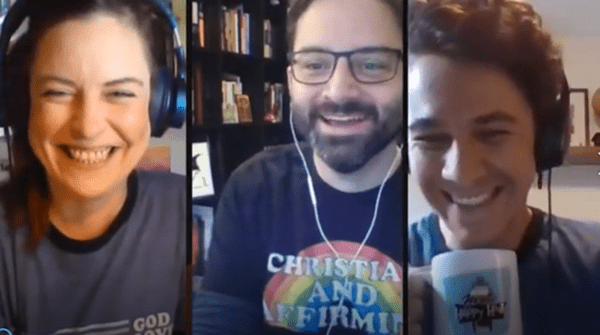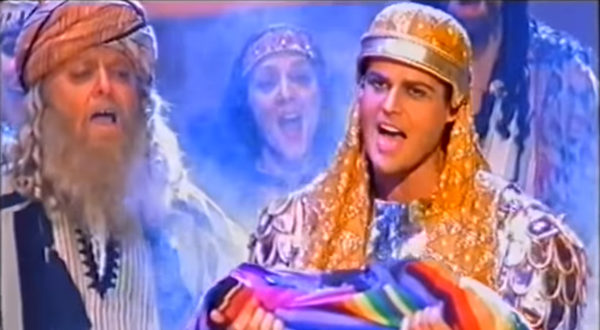After watching Selma, I had a weird feeling that the filmmakers thought they were making one kind of movie but unintentionally made a very different one. I gleaned from rave reviews and interviews with the actor David Oyelowo (Dr. King) and director Ava DuVernay that they thought they were making a tribute movie to a hero of the civil rights movement in the United States, Dr. Martin Luther King, Jr. They seemed to believe that his leadership in the face of insurmountable political odds and ruthless violence made of Dr. King not just a hero for his time but a hero for our time as well. They deliberately evoked the death of Michael Brown in Ferguson as if to directly challenge protesters to take Dr. King as their model and refuse to be deterred in their demands for justice. Their deepest wish, so they told the press, is that their movie could be a vehicle for healing and reconciliation sorely needed today.
This is the movie that has won praise from activists working for social justice seeking to end the scourge of institutionalized racism in our criminal and justice systems, but I’m sorry to say it is not the movie that I saw. Or rather, the movie I saw told the hero narrative in such an uncritical way that another story, a deeper story, could barely contain itself. I’d like to talk about that story here and in order to do so we will need to put aside questions of historical accuracy. Whether the events actually happened as portrayed or whether the participants’ motivations and sympathies are accurately presented matters little to this discussion. Why? Because the movie has created its own reality, an interpretative narrative that now must be analyzed in its own right. Because rather than a source of reconciliation, my fear is that this movie will only stoke anger and harden the dividing line between the oppressed and their oppressors, a condition that makes reform and healing impossible.
My work over the years with the mimetic theory of René Girard has made me suspicious of hero narratives like Selma and consequently a believer in nonviolent resistance. Hero narratives tell a version of events in which heroes face off against villains in morally unambiguous quests for truth and justice. Heroes battle monsters in human form and audiences are encouraged to cheer the methods, however violent, of the heroes and celebrate the defeat, humiliation and death of the villain. There are villains aplenty in Selma. The movie unflinchingly portrays the cold-hearted murder of children, the brutality of police violence, and anonymous vigilante murder. With excruciating honesty, we see the cold, hard face of those who have so dehumanized black people that they appear on the screen as some sort of monstrous distortion of humanity itself. In other words, they are very easy to hate. The villains of Selma have so lost sight of the humanity of black people that their hold on their own humanity has faltered and failed.
As Girard has made me all too aware, however, hero narratives like this one are nothing more than justifications for violence in the name of goodness. They are two-faced and hypocritical because the very same violence that they condemn when employed by the villain is celebrated when used in service of the greater good. Hero narratives are the very opposite of Jesus’ counsel to love your enemies and pray for those who persecute you so that we may become children of God. Believing in our own heroic efforts to fight injustice offers us an escape route from love. If Jesus knew just how wicked our enemies were and just how good we are, we think, then he’d give us a pass on love just this one time and endorse our violence.
Of course, nonviolent resistance, has no such escape route from love. It is rooted in the unwavering recognition of the humanity of all the parties, especially our enemies. Despite the hatred that grips the hearts of oppressors or their unrepentant use of violence, the principles of nonviolent resistance demand that their inhumanity be met with love. Michael Nagler, the founder and president of the Metta Center for Nonviolence, says this in The Nonviolence Handbook: A Guide for Practical Action:
In a nonviolent outlook… we no longer think of a dispute as a zero-sum game where, in order for me to win, you have to lose. It is not me against you but you and me against the problem; there is a way both of us can benefit and even grow.
As an example of this approach, Michael offers this anecdote from Islam:
[T]he Prophet Muhammad once told his followers that they must help everyone, even an oppressor. When they asked him how one can help an oppressor, he replied, “By preventing him from his oppression.”
Strangely, and I think contrary to their intentions, the filmmakers presented Dr. King’s actions in Selma in such a way that he appears to be consciously and willfully failing to love his enemy. According to the movie, Dr. King chose Selma because he needed “drama” to get the attention of the press and to energize not only the black but the white community to demand action on voting rights reform. An incredibly noble and unimpeachably good goal, of that I have no question. But the “drama” the Dr. King of this movie sought was the drama of violence. The filmmakers make no secret of his motivation in choosing to go to Selma: he knew he could provoke the white sheriff there into a violent response to nonviolent protests. I couldn’t help but wonder if that was a loving thing to do? Putting aside the many protestors who suffered and died because King was right – the sheriff was unconscionably brutal – is it right to provoke someone to be their worst self? Is any cause noble enough, the number of beneficiaries high enough to justify the disregard for the good of one other person?
I couldn’t help but wonder what effect this might have in our already polarized environment. The movie is being hailed as a vehicle for reconciliation, and perhaps it could be. But after the deaths of Michael Brown and Eric Garner we have assembled an ample supply of reasons to hate politicians, police chiefs, districts attorney, and cops. I’m not sure we need more! What we need is a way to move beyond hatred and victimization that liberates the oppressed and the oppressor alike from a system that dehumanizes us all. We must move beyond the easy divide of monsters and heroes that frankly the movie thrives on to probe more deeply into the problem of dehumanization. Let us ask ourselves, how does it happen that some of our fellow human beings lose their moral compass so completely? Is it happening to us? Were the movie’s bad guys “utter pieces of human garbage” as one blogger put it or were they human beings like you and me? If we are to find the way in which all of us can benefit and even grow, we must see ourselves in our enemies and our enemies in ourselves. Selma does little to encourage that type of humility and love.
For stories from the front line of nonviolent resistance, see Lindsey Paris-Lopez’s Martin Luther King Day interview with Rosalie Riegle about her book, Crossing the Line: Nonviolent Resisters Speak Out for Peace.











